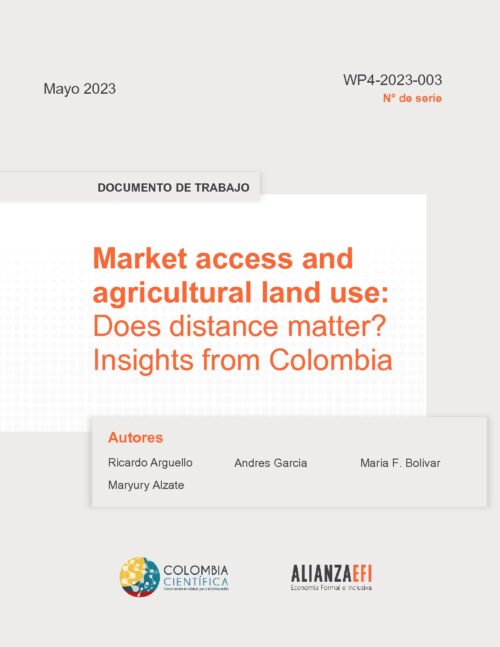A rich dataset, based on the agricultural census, characterizing Colombian agricultural units is used
to examine the relationship between market access and market influence, on one hand, and the
intensity of land use for productive purposes as instrumented as the share of usable land with
respect to the total area of the production unit, on the other. We find that there is a stable and
significant negative relationship between the two, meaning that as market access and market
influence improve there is a decline in the share of usable land in average, reflecting a lower extent
an intensity of agricultural activity. We additionally explore heterogenous effects arising from
different market types and find that this relationship changes with the type of municipality, yielding
significant implications for land and rural policy. Overall, the results provide evidence supporting
the convenience of place-based policies and the usefulness of the qualified von Thünen model for
approaching the analysis of rural land use.
Autores:
- Andres García Suaza
- Luis Ricardo Argüello Cuervo
- Maria F. Bolivar
- Maryury Alzate
Palabras clave:
- Colombia
- Land policy
- Land use
- Market access
- Market influence
- von Thünen model
Categorías:
- Proyecto 4
- Documentos de trabajo
